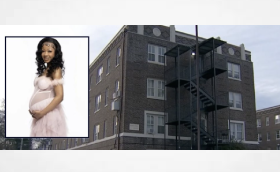Overview
The court threw out the Petitioners claim that the respondent had breached Real Property Law [RPL] §231(1) and Real Property Actions and Proceedings Law [ RPAPL] §§ 711(5) and 715(1) on the grounds that the Petitioner has failed to state a cause of action and improperly served the Respondent. The law prohibits “using or permitting the subject premises to be used for an immoral or illegal purpose and for an illegal trade or business to wit: the illegal possession and/or sale of a controlled substance(s) and that the subject apartment, or any part thereof, is used or occupied for purposes of the illegal possession, packaging, sale, trade or manufacture of a controlled substance(s), or, for other illegal business of or relating to controlled substance(s).”
Although this case was dismissed, this case exemplifies the importance of licensing prior to starting production. Furthermore, this case shows the importance of being on good terms with your landlord as they can make your life very difficult, especially as growers, producers, or cultivators.
Background
On July 19, 2002, pursuant to a search warrant, the respondent was arrested at 1432 Pacific Street, Brooklyn, New York 11213, and charged with (1) growing the plant known as cannabis by unlicensed persons[1]; (2) criminal possession of a controlled substance in the second degree[2]; and criminal possession of marijuana in the first degree.[3] As a result of that arrest, the Office of the District Attorney, in a letter dated January 6, 2004, notified the petitioner’s attorney that there was “clear evidence that the premises were being used for the illegal business of selling narcotics” and “urging” the petitioner to “initiate eviction proceeding against the tenant.”
Issue
The issue, in this case, was procedural at its core. The question was: If this matter is voluntarily discontinued must it be with prejudice pursuant to CPLR §3217(c) or, in the alternative, if the motion to dismiss is granted on default must it be with prejudice?
Ruling
The court held that, regardless of whether the proceeding is voluntarily discontinued at the request of the petitioner, or dismissed upon the motion of the respondent, in either case, the net result will be the same: no prejudice will attach.
Analysis
Although the procedural issue is interesting, what is even more interesting is the distinction the court makes between using a premises for the commission of illegal acts and using the premises illegally in breach of RPL 231 and RPAPL 715(1).
Both RPL 231 and RPAPL 715(1) revolve around the liability of the landlord and the exact methodology of voiding a co-op/condo lease. New York’s “bawdy-house” laws (New York Real Property Actions and Proceedings Law (“RPAPL”) §§ 711(5) and 715) applies in the landlord-tenant context—which includes co-ops because they operate under a proprietary lease—to hold a landlord liable for a “disorderly” premises where the landlord is in control of the premises and aware of certain activities therein (e.g., prostitution or other illegal business). A finding that the premises are “disorderly” can entail substantial civil penalties and attorney’s fees.
RPAPL Section 715 sets forth the grounds and procedure where the use or occupancy of a property is illegal. It provides that any “owner or tenant” of a premises “may serve personally upon the owner or landlord of the premises [being illegally used or occupied], or upon his agent, a written notice requiring the owner or landlord to make an application for the removal of the person so using or occupying the same.” Thereafter, if the owner or landlord (here, the co-op board) fails to make the application within five (5) days “or, having made the application, does not in good faith diligently prosecute it, the person, corporation, or enforcement agency giving the notice may bring a proceeding under [RPAPL § 715] for such removal. . . .” In such a proceeding, both the person in possession of the property being used or occupied for an allegedly illegal purpose and the owner or landlord (here, the co-op board) would be named as respondents in the proceeding.
Further, the court cited New York City Housing Authority v. Mojica, NYLJ, 1/14/99, p. 27, col. 3, in which that court held that, “while the petitioner does not have to prove its case in the petition, it does have to state the facts upon which the proceeding is based. Nowhere in the petition are there any facts which indicated that there was a sale of a controlled substance at or around the subject premises, nor any facts stated that the respondent was using the subject premises unlawfully for an illegal trade or business, nor any facts stated as to respondent and others acting with respondent’s knowledge, acquiescence or permission for an illegal trade or business.”
Conclusion
The court held that the petitioner has the burden of proof, by a preponderance of the evidence, to show that the tenant’s apartment was used for an illegal purpose. Without proving that, the landlord may be liable for the actions occurring in the premises. However, Since the petitioner withdrew its request for a discontinuance, and presented no opposition to the respondent’s motion to dismiss, the motion was granted on default, in its entirety, without prejudice.
Takeaways
1) When a landlord is aware of the sale of illegal marijuana occurring on her property, she has an obligation to evict the tenants or may be liable as a result.
2) There is a distinction between using a premises for illegal activity and using a property in a “disorderly fashion.
3) Rent-stabilization effects the eviction process.
4) Because of marijuana’s placement as a schedule 1 drug, there are risks to tenants, such a potentially being evicted and losing their property.
[1] New York Public Health Law [PHL] §3382
[2] New York Penal Law [PL] §220,18[6]
[3] New York Penal Law§221.30

Alexander Hymowitz
Alexander is a third-year law student at New York Law School. Alex is interested in the legacy market, social-equity and regulatory scheme differences between states.



















